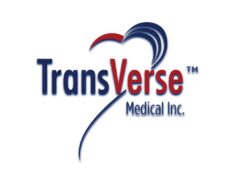
Enhanced external counterpulsation (EECP, Flow Therapy), a non-invasive treatment that increases blood flow, is a promising solution for patients with angina with no obstructive coronary arteries (ANOCA).
This is according to the findings of a study presented at the American Heart Association (AHA) 2023 Scientific Sessions (11–13 November, Philadelphia, USA) and simultaneously published in the American Journal of Cardiology.
ANOCA patients have debilitating symptoms, but no visible blockages in their main heart vessels. Emerging evidence indicates that these symptoms are predominately caused by coronary microvascular dysfunction—blockages that are too small to address surgically.
“For interventional cardiologists, many of our unmet needs involve the microvasculature,” said Timothy D Henry (The Christ Hospital Heart and Vascular Institute, Cincinnati, USA).
Data show that 30‒40% of patients undergoing imaging procedures for angina are found to have no obstructive coronary artery disease and live with persistent symptoms, undergo repeated diagnostic evaluations, and remain ineffectively treated.
“In patients with microvascular dysfunction, they typically have exertional chest pain, and we will often use EECP in this patient population,” said Henry. He and colleagues recently worked with Flow Therapy to assess the effects of EECP in over 100 patients with ANOCA—the largest dataset of its kind.
“The results are exciting. This study shows that 70% of patients improve at least one CCS angina class, which has important clinical implications as each class improvement is associated with significant reduction in morbidity, mortality and healthcare utilisation. We are eager to conduct future research to further explore and elucidate the role of EECP in this ANOCA patient population with very limited treatment options,” said Michael Gratch, CEO of Flow Therapy.
Odayme Quesada, director of the Women’s Heart Program at the Christ Hospital, and senior author of the paper, noted: “These are patients with persistent chest pain and a poor quality of life, markers that are very important to improve in this population.”
EECP is a US Food and Drug Administration (FDA)-approved treatment for the management of refractory angina, and is an underutilised, non-invasive treatment modality which has been demonstrated to improve cardiac remodelling, endothelial function, and flow mediated dilation, with evidence showing improved markers associated with morbidity and mortality, including improved physical capacity, symptom burden, and overall quality of life.













